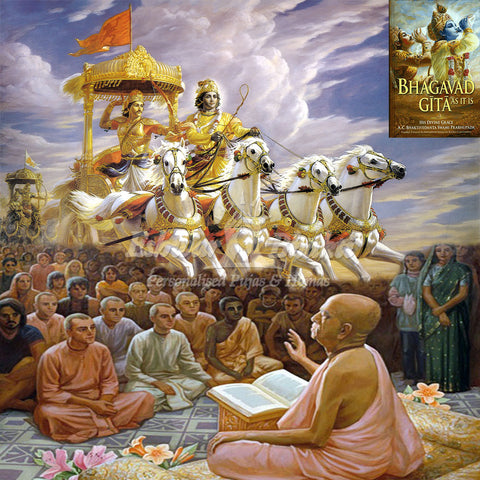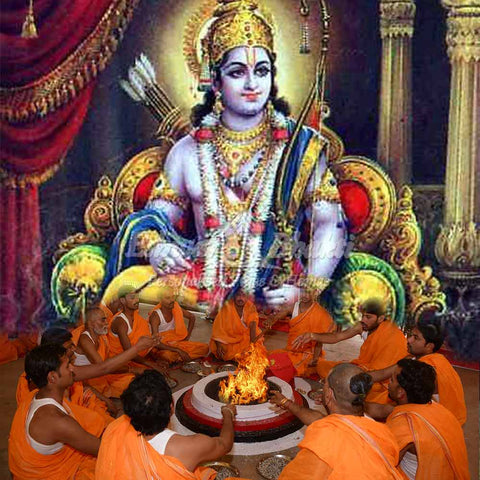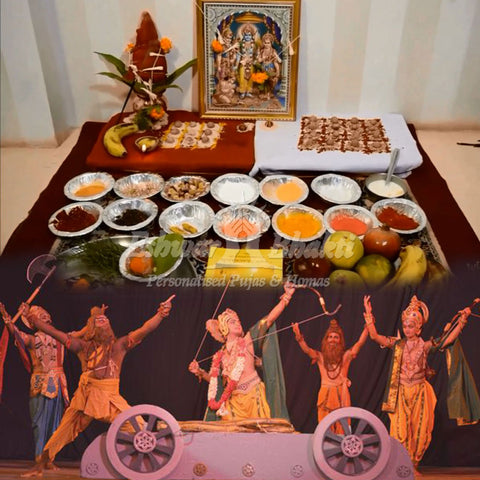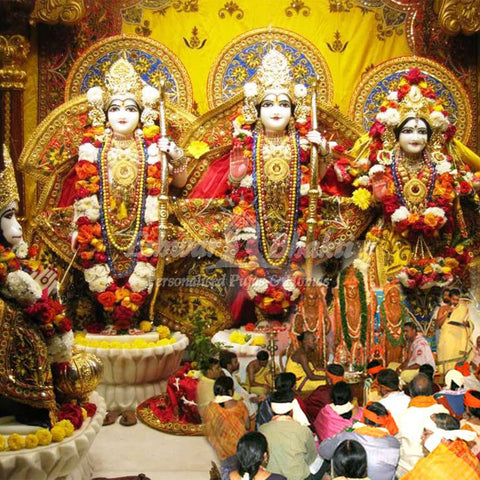Meaning of Atithi Devo Bhava
Atithi Devo Bhava is a Sanskrit phrase that has profound significance in India and Hinduism. In the current decade, it is a part of empowering tourism in the country. However, the concept has its origin in the ancient days. In the olden days, there was no means of communicating someone's arrival at a house. The notion of Atithi Devo Bhava originated from the unpredictability of the visitors in the past centuries. Tithi, in Sanskrit, refers to the calendar. Atithi means someone who does not have a calendar. So, Atithi is a guest who can visit us at any time. Devo Bhava means God-like. Thus, Atithi Devo Bhava indicates that we must consider our guests as equivalent to God. It highlights the importance of maintaining a host-guest relationship.

We can find the concept of Atithi Devo Bhava in Shijshavalli I 11.2 in Taittriya Upanishad. It states, "Matru Devo Bhava, Pitr Devo Bhava, Acharya Devo Bhava, Atithi Devo Bhava." It means that we have to be someone who considers his or her mother as God. We have to be someone who views his or her father as God. We have to be someone who identifies our teacher as God. Finally, we have to be someone for whom the guest is God. Throughout the hymn, it shows the importance of revering our parents, teachers, and guests as equivalent to God.
Rituals associated with Atithi Devo Bhava: While we welcome a guest to our houses, there are different factors to consider. It has become a part of the tourism industry. But, in the ancient days, there was a customary way of welcoming guests to our houses. In some parts of India, people continue to practice it. It includes:
1. Dhupa - It means that offering the guest a room with pleasant fragrances. It is a way of ensuring their comfort.
2. Diya - Often, while welcoming a guest, Diya (oil lamp) is lit. In the ancient days, there was no electricity. So it was a means of providing visibility. It is also an invocation of Agni Deva or Lord of Fire.
3. Naivedya - It includes fruits as well as sweets made from milk. In the ancient days, most of the people traveled long distances to reach the houses. By offering them fruits or sweets, it is a way of boosting their energy.
4. Akshata - It is a symbol of being undivided. We apply Tilak on the forehead and rice grains or Akshata on it. It is a way of welcoming the guest to the house as a part of it.
5. Pushpa - When we offer Pushpa or flowers to our guests, it is a symbol of goodwill. Hosts also give flowers when their guests leave. It is a way of carrying the memories from their stay.
These are some of the rituals associated with Atithi Devo Bhava that play a significant role in Hindu traditions and customary practices.
 Legends: There are several legends related to the concept of Atithi Devo Bhava in Hinduism and Indian scriptures. It plays a significant role in Buddhism, as well. As per the story from Bhagawat Purana, Sudama or Kuchela is a Brahmin who completed his education with Lord Krishna. They were both childhood friends. However, the living conditions of Sudama worsens with time. Poverty hits his family very badly, and his wife Susheela suggests that he must seek the help of his friend, Lord Krishna. Sudama wasn't sure of the idea. However, within a few days, he was convinced and finally visited Krishna. Though Sudama didn't have anything special to offer his friend, he decided to give Lord Krishna the last grains of beaten rice. Lord Krishna welcomed Sudama with all love, respect and grandeur. It is an apparent depiction of welcoming our guests like a God or Atithi Devo Bhava. When Sudama returned back to his hut, it suddenly turned into a mansion. This story of Sudama and the way he was hosted by Krishna show the significance of the concept of Atithi Devo Bhava in India. Apart from Sudama's story, several other tales also glorify Atithi Devo Bhava in India. For instance, the legend of Sabari, a woman from a tribal village, who entertains Sri Ram. When Lord Rama visited Sabari’s ashram, she offered hand picked Jujube and tasted each piece for its sweetness before offering to Rama. Lord Rama ate all Jujube which were tasted by her.
Legends: There are several legends related to the concept of Atithi Devo Bhava in Hinduism and Indian scriptures. It plays a significant role in Buddhism, as well. As per the story from Bhagawat Purana, Sudama or Kuchela is a Brahmin who completed his education with Lord Krishna. They were both childhood friends. However, the living conditions of Sudama worsens with time. Poverty hits his family very badly, and his wife Susheela suggests that he must seek the help of his friend, Lord Krishna. Sudama wasn't sure of the idea. However, within a few days, he was convinced and finally visited Krishna. Though Sudama didn't have anything special to offer his friend, he decided to give Lord Krishna the last grains of beaten rice. Lord Krishna welcomed Sudama with all love, respect and grandeur. It is an apparent depiction of welcoming our guests like a God or Atithi Devo Bhava. When Sudama returned back to his hut, it suddenly turned into a mansion. This story of Sudama and the way he was hosted by Krishna show the significance of the concept of Atithi Devo Bhava in India. Apart from Sudama's story, several other tales also glorify Atithi Devo Bhava in India. For instance, the legend of Sabari, a woman from a tribal village, who entertains Sri Ram. When Lord Rama visited Sabari’s ashram, she offered hand picked Jujube and tasted each piece for its sweetness before offering to Rama. Lord Rama ate all Jujube which were tasted by her.
Significance of Atithi Devo Bava: Atithi Devo Bhava, as a practice, has a long history in India. It has a plethora of significance, as well. Here, we will look into some of them.
1. Atithi Devo Bhava depicts the warmth and hospitality offered to guests by hosts in India. We provide preferential treatment to the guests, which is known as Atithi Satkar. In India, the hosts value providing the best facilities.
2. Atithi is someone who comes unexpectedly and who can stay as long as they prefer. It is essential to take care of their needs and provide them the best stay.
3. Guests have to be treated with love and affection. You can always welcome a guest by focusing on the rituals mentioned above.
4. Whenever a guest visits, it is a time of happiness. The concept of Atithi Devo Bhava is highly relevant when it comes to festivals like Diwali.
5. Nowadays, most of the guests visit only after informing. But, in the ancient days, there was no means of communicating. It is necessary to expect a guest anytime.
6. As mentioned above, a guest can be anyone. So, it is essential to welcome guests without any distinction based on caste, color, or creed. We have to treat the person with care, love, and affection.
The practice of Atithi Devo Bhava taken from the ancient Hindu Scriptures has become a code of conduct for Hindu communities and societies. We don't often follow all the rituals associated with Atithi Devo Bhava as in the olden days. However, we do welcome our guests with love, respect, reverence, and care.





Comments
Interested to read many Spiritual Articles from this .
Wish read articles